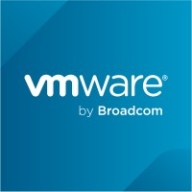

Microsoft Azure and VMware Cloud Foundation are competitors in the cloud computing and virtualization market. Microsoft Azure appears to have an edge due to its extensive range of deployment options, programming language support, and seamless integration with Microsoft services.
Features: Microsoft Azure offers global deployment, support for various programming languages and frameworks, and Azure Active Directory for enhanced security. Its platform is known for scalability and efficient integration with Microsoft tools. VMware Cloud Foundation emphasizes management simplicity for data centers, offering streamlined lifecycle management and robust virtualization capabilities with an integrated infrastructure stack.
Room for Improvement: Microsoft Azure users often point to the need for simplified debugging, improved pricing clarity, and enhanced integration with non-Microsoft systems and security management. VMware Cloud Foundation could benefit from increased flexibility in integrations, easier lifecycle management processes, and reduced pricing to be more accessible to a wider range of businesses.
Ease of Deployment and Customer Service: Microsoft Azure facilitates deployment with numerous templates and automation options but has variable technical support quality influenced by service tiers. VMware Cloud Foundation's deployment may seem complex initially due to its converged infrastructure needs but automates many configurations for smoother implementation. Its customer support is generally well-rated, though users desire faster response times.
Pricing and ROI: Microsoft Azure implements a pay-as-you-go pricing model, often seen as competitive but sometimes unpredictable due to licensing complexities. It is recognized for its cost-effectiveness in smaller environments. VMware Cloud Foundation involves higher upfront costs yet promises significant long-term savings over traditional infrastructures. Both solutions deliver robust ROI, with Azure favoring an OPEX approach and VMware focusing on hardware reduction efficiencies.
The value for money is good, and Microsoft Azure has positively impacted our operational costs.
When we use Microsoft Azure, it provides enhanced security from our perspective, though I am not certain about the financial return on investment or benefits for our users as I do not have that information.
VMware Cloud Foundation allows cost and time savings by quickly deploying infrastructure requests and integrating automatic ticketing and backup services.
In terms of ROI, although VMware Cloud Foundation is expensive, it saves time in most cases, which indirectly saves costs for users.
Microsoft needs to engage L3 and L2 in support when specified in service tickets.
The support from Microsoft Azure is good.
Regarding technical support from Microsoft, I find they are responsive and helpful, depending on which support package you're on.
There are times when support is unclear, and even VMware support personnel may lack familiarity with certain parts, causing difficulties.
Based on my nine years of experience with VMware, I would evaluate their technical support as effective.
The technical support from VMware Cloud Foundation deserves a nine out of ten rating.
Microsoft Azure is not just one product; it is a platform with multiple products within Microsoft Azure, and I would say it is scalable and would rate it a nine.
The scalability of Microsoft Azure is excellent for growth and adaptation, depending on company requirements.
It has different kinds of designs that allow for management and deployment in multi-zones, offering both scalable and non-scalable options.
When more hosts are added, performance goes slow.
VMware Cloud Foundation supports scalability and company growth.
VMware Cloud Foundation is quite scalable, receiving a rating of eight and a half to nine out of ten.
We noticed a few critical servers went down due to a Microsoft Azure-end hardware issue.
We are now migrating clients without the zoning into mandatory multi-zone deployments, so if one zone goes down, their application and database remain live.
Microsoft Azure is quite stable, but recent outages and security issues have slightly decreased my confidence.
The stability of VMware Cloud Foundation is very high.
If one component fails to operate in a timely manner, the entire infrastructure can go down because everything is interconnected.
I am currently satisfied with the stability of VMware Cloud Foundation, though having started only two to three months ago, I am still in the monitoring phase.
Recent outages and security issues are also a concern, causing a decrease in confidence, especially when partnering with third-party companies.
The administrative side is suitable for technical people, but our finance and HR super users find it less user-friendly, as they prefer drag-and-drop features to build their own solutions without contacting IT.
There is still room for improvement in terms of pricing.
VMware Broadcom needs to include auto resource allocation at the VM levels.
The maintenance cost has increased significantly, especially after Broadcom acquired VMware, with a shift from socket-based licensing to core-based licensing.
Each user needs deep knowledge of every aspect of virtualization.
Microsoft solutions might be cheaper than some services like AWS, but some solutions may be more expensive depending on the services compared.
Copilot is expensive based on recent pricing for our POC.
They have discounts and also provide promotions for a three-year reservation which comes with significant discounts on the infrastructure part.
The cost has become very high, especially after Broadcom's acquisition, altering the licensing model to a more expensive core-based system.
When comparing prices of both clouds, AWS is cheaper because they offer a free section for practice.
The price is quite higher than some other vendors.
Power BI, another feature of Azure, is extremely elegant and has robust features that support forecasting using R and Python.
If Microsoft gives a report, such as a server performance report in a detailed way, which shows what is consuming more CPU, memory, and disk IO, and network utilization during a particular time, it would be helpful to visualize that information.
What is very interesting in terms of scalability is the automatic possibilities to provision some new machines to be able to absorb the number of users we have in the system.
The solution now offers auto-deployment of VMs.
All features of VMware Cloud Foundation are valuable to us, as it covers every industry standard protocol and requirement protocol.
VMware Cloud Foundation allows for extensive customization, aligning with our customer requirements.
| Product | Market Share (%) |
|---|---|
| Microsoft Azure | 14.9% |
| VMware Cloud Foundation | 1.4% |
| Other | 83.7% |


| Company Size | Count |
|---|---|
| Small Business | 140 |
| Midsize Enterprise | 53 |
| Large Enterprise | 148 |
| Company Size | Count |
|---|---|
| Small Business | 8 |
| Midsize Enterprise | 3 |
| Large Enterprise | 27 |
Microsoft Azure integrates services and offers flexibility, ensuring compatibility with diverse environments. Its scalability, security, and cost-efficient features enhance deployment and management, making it ideal for infrastructure services and application hosting.
Azure provides a comprehensive suite of tools for application deployment, virtual machine management, and data analytics. It allows seamless integration with Power BI and offers a user-friendly interface supported by detailed documentation and technical support. Though users appreciate its capabilities, they sometimes face challenges with costs, setup, and interface complexity, alongside integration and performance issues. Frequent updates and a learning curve are also noted, though Azure's cloud-based security and scalability remain critical for disaster recovery and business continuity.
What are Azure's key features?Microsoft Azure is widely implemented in industries like financial services, healthcare, and logistics for hosting enterprise applications and vital services. Companies utilize its capabilities for IoT applications, DevOps, and Kubernetes clusters, benefiting from its cloud migrations, data analytics, and active directory support.
VMware Cloud Foundation makes it easy to deploy and run a hybrid cloud. VMware Cloud Foundation provides integrated cloud infrastructure (compute, storage, networking, and security) and cloud management services to run enterprise applications in both private and public environments.
We monitor all Infrastructure as a Service Clouds (IaaS) reviews to prevent fraudulent reviews and keep review quality high. We do not post reviews by company employees or direct competitors. We validate each review for authenticity via cross-reference with LinkedIn, and personal follow-up with the reviewer when necessary.